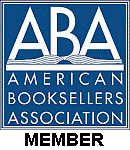Blood In The Inkwell, the controversy surrounding the Danish 'Muhammad' cartoons
by Paul O'Brien
 Around the world, people have been taking to the streets in protest - and people have even been dying - over cartoons. Paul O'Brien looks at both sides of the controversy surrounding the Danish 'Muhammad' cartoons.
Around the world, people have been taking to the streets in protest - and people have even been dying - over cartoons. Paul O'Brien looks at both sides of the controversy surrounding the Danish 'Muhammad' cartoons.
13 February 2006
Source: Ninth Art
Chances are you'll be sick of reading about the Danish cartoons controversy by now, but indulge me. After all, this is one of those rare occasions that something loosely bearing on comics has been genuinely newsworthy in the outside world.
 This whole mess has been deeply unpleasant to watch for all manner of reasons. It would have been nice to think that it would at least prompt some serious discussion about the way we relate to a very different culture, and how far we should go to acknowledge religious sensibilities. To some extent that has happened, but for the most part we've been regaled by the sight of two camps screaming at one another. On the one hand, the Society for the Reinforcement of Islamic Stereotypes takes to the streets to demand that the taboos of their religion should be enforced by law. On the other, westerners piously insist on the sacrosanct nature of freedom of speech and largely dodge any further debate about the cartoons themselves - while simultaneously demanding that Muslim protestors should be arrested for dressing in an offensive fashion.
This whole mess has been deeply unpleasant to watch for all manner of reasons. It would have been nice to think that it would at least prompt some serious discussion about the way we relate to a very different culture, and how far we should go to acknowledge religious sensibilities. To some extent that has happened, but for the most part we've been regaled by the sight of two camps screaming at one another. On the one hand, the Society for the Reinforcement of Islamic Stereotypes takes to the streets to demand that the taboos of their religion should be enforced by law. On the other, westerners piously insist on the sacrosanct nature of freedom of speech and largely dodge any further debate about the cartoons themselves - while simultaneously demanding that Muslim protestors should be arrested for dressing in an offensive fashion.
Of course, it's essential to acknowledge at the outset that there's clearly some political manipulation going on here. This is a controversy that has been cynically inflamed in the Middle East for political reasons. The cartoons saw print in Egypt last October and nothing came of it, because nobody was trying to capitalise at that point. But nonetheless, you don't get riots with multiple fatalities unless people genuinely care.
The fundamental problem with this whole debate is an unwillingness on both sides to recognise the distinction between law and morality. Freedom of speech is a legal and political concept. It's rightly considered to be a bedrock principle of western democratic societies. But this merely means that we acknowledge the value of open public debate, and consider that the value of allowing all voices to participate outweighs the disadvantages.
'We've been regaled by the sight of two camps screaming at one another.'
 So it really isn't good enough to simply invoke the principle of free speech and declare the argument to be over. Of course, it's a good answer to "these cartoons should be banned". But it's a pretty lousy answer to "these cartoons should not have been published in the first place" - a criticism of the publisher's judgment, rather than a call for legal intervention. Just because you have the right to say something, it doesn't mean you should. By its nature, freedom of speech protects all manner of opinions that are stupid, wrong, hateful, and should generally never be voiced. It protects them because of the overriding interest in promoting free debate, not because the opinions themselves have any merit. "You shouldn't say that" is not the same criticism as "You shouldn't be allowed to say that", and raises entirely separate issues.
So it really isn't good enough to simply invoke the principle of free speech and declare the argument to be over. Of course, it's a good answer to "these cartoons should be banned". But it's a pretty lousy answer to "these cartoons should not have been published in the first place" - a criticism of the publisher's judgment, rather than a call for legal intervention. Just because you have the right to say something, it doesn't mean you should. By its nature, freedom of speech protects all manner of opinions that are stupid, wrong, hateful, and should generally never be voiced. It protects them because of the overriding interest in promoting free debate, not because the opinions themselves have any merit. "You shouldn't say that" is not the same criticism as "You shouldn't be allowed to say that", and raises entirely separate issues.
Obviously there is no scope whatever for compromise on the question of freedom of speech. That does not absolve the newspaper or the cartoonists from criticism, and it's only right to fully consider that dimension as well.
The background to the original publication is worth summarising, because the publishers don't come out of it terribly well. From a superficial reading of the reports, you might be left with the impression that the protestors are simply upset about some editorial cartoons that happened to depict Muhammad. The reality is somewhat more complicated.
 The Danish newspaper Jyllands-Posten ran the original cartoons last September. They were prompted by concerns about self-censorship and whether Danes were too willing to bow to unreasonable demands from Muslim campaigners. In particular, one Danish writer, Kare Blutgen, had struggled to find anyone prepared to illustrate his planned biography of Muhammad because they feared reprisals from extremists. A perfectly legitimate debate, so far as it goes.
The Danish newspaper Jyllands-Posten ran the original cartoons last September. They were prompted by concerns about self-censorship and whether Danes were too willing to bow to unreasonable demands from Muslim campaigners. In particular, one Danish writer, Kare Blutgen, had struggled to find anyone prepared to illustrate his planned biography of Muhammad because they feared reprisals from extremists. A perfectly legitimate debate, so far as it goes.
It is hardly surprising that artists didn't want to draw Muhammad because, as everyone knows by now, representing Muhammad in visual art is an Islamic taboo. In fact, though, this is a serious overstatement. There are plenty of depictions of Muhammad in Islamic art, and in any event, the underlying idea for the ban was to discourage idolatry rather than the notion that visual depictions were offensive to Muhammad in and of themselves. The view that pictures of Muhammad are inherently taboo is, in fact, a minority one. The real problem is the content of the cartoons, not their mere existence. Satirical or mocking depictions of Muhammad are a big problem.
''Freedom of speech' does not absolve the cartoonists from criticism.'
 The newspaper approached forty or so editorial cartoonists and asked them, simply, to contribute cartoons about Muhammad. This, in itself, is difficult to interpret as anything other than a conscious exercise in winding up puritan Muslims. It's one thing to do a cartoon that you were going to do anyway, and not allow religious sensibilities to put you off. It's quite another to do something so obviously provocative under the guise of starting a public debate. At the very least, the whole concept has to be considered foolish.
The newspaper approached forty or so editorial cartoonists and asked them, simply, to contribute cartoons about Muhammad. This, in itself, is difficult to interpret as anything other than a conscious exercise in winding up puritan Muslims. It's one thing to do a cartoon that you were going to do anyway, and not allow religious sensibilities to put you off. It's quite another to do something so obviously provocative under the guise of starting a public debate. At the very least, the whole concept has to be considered foolish.
Of the cartoonists approached, most refused to have anything to do with it. Twelve responded, and their contributions were all published. They're a mixed bag. A couple are simply sketches of Muhammad without any apparent further message, and arguably should be unobjectionable. Others primarily comment on the fear of intimidation from extremists and can be justified as having a legitimate and ultimately sensible point to make. The only real criticism to be made of these ones is their willingness to associate themselves with such a gratuitously inflammatory exercise.
Two others are cartoons at the expense of the newspaper itself. One shows Blutgen celebrating the free publicity for his book. The other shows a schoolboy called Muhammad - clearly not the prophet himself - writing in Farsi on a blackboard. The writing says "The editorial team of Jyllands-Posten are a bunch of reactionary provocateurs", which is hard to argue with. Apparently nobody at the newspaper bothered to find out what it said before printing it, which in itself is illuminating in terms of the concern shown for possible offence. Still, it would hard to criticise either of these contributors, who have only turned up to decry the entire exercise themselves.
Then we get into the really tricky ones. Some identify Islam with terrorism and misogyny. One shows Muhammad positioned so that the crescent moon behind him forms devil horns - with no other apparent message. Worst of all is a sketch of Muhammad's head with his turban (bearing the Islamic creed) forming a bomb with a lit fuse. Again, there's no other context or explicit message. It's difficult to avoid concluding that some of these cartoons are downright racist. Yes, there are plenty of Islamic terrorist groups out there, but Ireland has plenty of Christian terrorist groups, and you don't see people satirising the IRA by drawing an exploding Pope. The identification of mainstream Islam with suicide bombers is just plain wrong. It is hardly surprising that reasonable Muslims might find some of this stuff offensive. Criticising Islamic societies for their attitude to women is fairer game, although blaming it directly on Muhammad is clueless given the actual content of his recorded teachings on the subject.
'Some of the cartoons identify Islam with terrorism and misogyny.'
Individually some of the cartoons are easily defensible, but even they were specifically commissioned to be provocative, in a context where 'provocative' is just a polite way of saying 'gratuitously offensive'. Others are just plain dodgy in any context. I don't have a problem with ignoring people's religious feelings and sticking to your guns. Nor do I object to tackling extremists head on. Nor, for that matter, do I object to the cartoons being republished by other newspapers, because they now serve the incontrovertibly legitimate purpose of informing the debate.

But I do have a problem with offending people just for the sheer hell of it, especially in an area as controversial as this, where it's just plain childish and unhelpful. And I do have a problem with doing so in a way that displays a blithering ignorance of the whole subject. Responding to a remit for cartoons about Muhammad with cartoons about terrorism displays some very worrying and inaccurate associations. The notion that Al Qaeda actually represent Islam is not one to be encouraged. It's bad enough that Al Qaeda believe it.
The whole exercise is difficult to defend on its merits. The right to publish is sacrosanct, of course. The protestors take their complaints far too far, and taint their case with a refusal to accept the ground rules of democratic society. Understandably, much has been said about the importance of not giving way on the principle of free speech, and rightly so, because we're never going to get anywhere if we can't get everyone clear on the basic principles of freedom.
But there is much in the original cartoons that is genuinely and understandably capable of causing offence, and at the very least, this is a thoroughly counterproductive way of pursuing a debate in which Muslims must unavoidably be participants. It is entirely possible to believe in the right to publish these cartoons and still think they were a horribly misguided idea - something which should not be lost sight of.
Paul O'Brien is the author of the weekly X-AXIS comics review.
This article is Ideological Freeware. The author grants permission for its reproduction and redistribution by private individuals on condition that the author and source of the article are clearly shown, no charge is made, and the whole article is reproduced intact, including this notice.
Home
Older Article: Ace Atkins, a satisfying blend of Blues music and noir fiction








